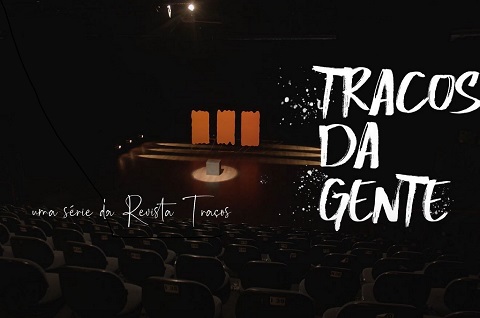By Miki Tsuchida, The Big Issue Japan
Having made a living as a truck driver for 30 years, Makoto has made a big change. Now the only thing on his mind is how best to sell magazines, making all kinds of plans for the sale.
The World Trade Centre building in Tokyo is at the tri-section of Hamamatsu Cho, which is the first station of the Tokyo Monorail connecting Haneda and Tokyo; the JR Hamamatsu-Cho station; and Daimon station of the metropolitan subway. At the gate of the building, we find 49-year-old Makoto holding up The Big Issue with one hand, smiling calmly. He sells the magazine here routinely from 9am to 7pm on weekdays, and from 10am to 7pm on weekends.

“At first, there would be days I could not make it – if I got a job to drive trucks,” Makoto says. Born and raised in Miyagi, he has spent his whole life as a truck driver. He joined the Self-Defense Forces as soon as he graduated from high school, and he was deployed to the Transport Department and also got his license for large vehicles.
After he left the SDF, he joined a transport company and so continued as a long-distance truck driver. However, he decided to come to Tokyo in his late twenties when the local economy fell into depression. “There was a job like a ‘one-hit wonder’ to take gravel from Tochigi to Tokyo in the middle of the night. That paid really well.”
Shortly after the ‘one-hit wonder’, he became a truck driver at a company in Saitama. However, he lost his job about six years ago suddenly when the company owner fled overnight. Later, he was transferred to a construction worker barracks. “It was just driving buses to send people off and pick people up. No hard work at all.”
Nevertheless, work became harder and harder to find. Last spring, he moved into Minato Dormitory – a self-supporting centre for the homeless people of Tokyo’s metropolitan area. Because his residential records were moved there, he heard from his long-lost younger sister, who was living in the countryside. The letter that arrived enclosed two copies of news from many years ago: the obituaries of his father and mother. Makoto was shocked. “I did not know either of them had passed away.”
He caught up with his sister over the phone. His old home in Miyagi had been destroyed during the 2011 Tōhoku earthquake and tsunami. Nobody lives there anymore, so it has gone to ruin. It has already been a quarter of a century since he left home.
The self-supporting centre has a time limit, past which he has to return to street life. He takes the odd driving job. By June this year, it seemed that he was at a loose end. He contacted The Big Issue office, after finding the address at a food centre, and was immediately pointed to the current sales spot.
“This is a good spot. I can sell about 15 copies a day. At first, I sometimes came at 6.30am. Sometimes I cross the road to the other side, and sometimes I go under the overpass in front of the station. I’ve tried everything. But there are too many people on the road between 8-9am, I would inconvenience others. That’s why I now come here after 9am.”

On weekdays and weekends, and during different hours, the flow of people is different, and the sales are different. Makoto observes and investigates all of them. But if he got a driving job, he used to stop selling for several days. This was changed after a single comment from a buyer. “I was told, ‘It won’t work if you don’t stand at the same spot every day.’ That was from a regular.”
He was immediately shocked. He took the advice and stood at the same spot and saw a change in outcome. The people who hurried passed him in the morning will come and buy from him during break time. People who weren’t able to buy because the stock ran out, or because they weren’t able to buy in other sales spots, would come to him later, asking, “You have magazines today, don’t you?”
Before I took on this job, I thought it was just selling magazines. I didn’t expect people would take care of me like this.
“I realised there are two types of customers. Some people buy the magazine just from looking at the covers, and there are people who would buy it after looking at what is inside. There are some who say ‘let me see the table of contents.’ I think these customers like to check the stories.”
Makoto finds it interesting that there are many people who buy back issues because they are into the contents. He made efforts to hold the magazines open so that these people could look inside. Gradually, more and more people stopped to have a look and ask questions.
“There are young people who will pass me some drinks saying, ‘It’s so hot every day so take care!’ This makes me so happy. Before I took on this job, I thought it was just selling magazines. I didn’t expect people would take care of me like this. Recently, I came to think maybe I am surprisingly good at sales.”
The future still remains to be seen, but he would like to cherish the present. “It is not necessarily good to just do the same job forever. Now the only thing on my mind is how to sell the magazines. I think if this goes well, then I will have a think about the future.”
As if dazzled, Makoto breaks into a smile.
Translated from Japanese by Lily Dali Su.




















